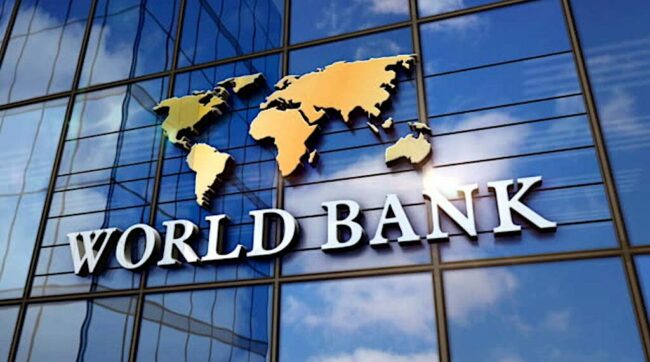The World Bank has revealed that Nigeria spent N10 trillion a year subsidizing petrol and exchange rates by 2022.
According to Indermit Gill, Senior Vice President of the World Bank Group, this figure, amounting to $15 billion at the free market exchange rate, was lost through a combination of fuel subsidies and disparities in exchange rates.
Gill stated this on Monday at the 30th Nigerian Economic Summit.
He said that Africa goes as Nigeria goes, so given its size and significance, and the success of Nigeria’s reforms that are happening today, will give a big boost to countries across the continent.
Gill added that because the whole world has a stake in Africa’s future, the whole world needs to pay attention to what Nigeria is trying to do today, and actually the whole world is paying attention.
He reminded the government that the problems that are being tackled today in the Nigerian economy first surfaced more than 40 years ago, when oil prices began collapsing in the early 1980s, after the big oil boom of the 1970s.
Gill urged the government to maintain the momentum of its current reforms for at least 10 to15 years to achieve the desired results, stressing that Nigeria abandoned its 2003 – 2007 reforms that had placed it on a better stead for sustainable growth.
ALSO READ:Ex-Edo deputy gov, Pius Odubu, heads 24-man APC transition committee
He stated, “The President’s signature reforms are essential. They are essential to break from the past and to chart a more hopeful course for all Nigerians.
“These include the unification of what used to be multiple exchange rates. They include allowing that unified exchange rate to be determined by the market. And, of course, they include the elimination of fuel subsidies”.
Gill said, “Nigeria’s need for jobs is immense. In the next 10 years, more than 12 million young Nigerians, both men and women, will enter the workforce generating jobs for them.
“It will only be facilitated by the private sector, and it will be facilitated by large-scale domestic and foreign private investment in the non-oil sector.
“Attracting such investment means boosting the national power grid, improving transportation, improving security, and improving the rules and regulations and enforcing them for private enterprise.
“So failure would set back reform efforts across the continent, besides ruining the future of yet another generation”.
He said before the reforms, the official exchange rate was roughly 465 Naira per dollar, and the freely determined parallel rate at that time was closer to N700, showing that for every dollar allocated at the official rate, the loss to the government was close to N250, every dollar.
“So the total loss in foregone federation revenues from oil, customs and taxes on imports amounted to 6.2 trillion Naira in 2022.
“This was more than three percent of GDP. You can do a lot with three percent of 300 billion dollars,” he pointed out.
He said the cost of subsidizing PMS and keeping its price below market levels amounted to N4.5 trillion in 2022.
“That was another two percent of GDP. You can do a lot with two percent of GDP, two percent of 300 billion dollars.
“Together, these two subsidies, the implicit one from the exchange rate and the explicit PMS subsidies amounted to a staggering 10 trillion Naira a year by 2022, or 15 billion dollars at the free market exchange rate,” Gill explained.
Taiwo Oyedele, the chairman of the Presidential Fiscal Policy and Tax Reforms Committee, said that if a new tax bill is passed by the National Assembly, wealthy Nigerians earning N100 million or more each month will be subjected to a personal income tax rate of 25 percent.
He stressed the importance of finding a middle ground that relieves tax pressures on low-income individuals while also ensuring that higher earners make a greater contribution to government finances.
Mr. Niyi Yusuf, Chairman of the Nigerian Economic Summit Group highlighted that high inflation, stagnant growth, and unsustainable debt weighed heavily on the nation then, just as they do now.
He noted that Nigeria has experienced two recessions in the past decade, each exposing deep-rooted structural vulnerabilities that must be addressed with renewed urgency.
“Hence, today’s challenges demand a new approach centred on collaboration to promote growth, competitiveness, and stability. While our nation has made significant strides, our challenges are clear.
“The twin problems of income inequality and multidimensional poverty continue to cast a long shadow over our progress.
“Nigeria’s struggle with an uneven distribution of resources, macroeconomic instability, and institutional fragility prevents us from reaching our full potential.
“The task before us is to forge decisive reforms that can break these cycles of stagnation and pave the way for equitable growth.
“Since our recovery from the 2016 recession, the Nigerian economy has shown resilience but remains fragile,” he stated.


